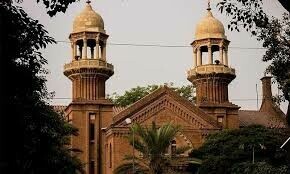The Islamabad High Court (IHC) on Friday formed a new bench to hear the Tayyaba torture case, days after the judge presiding over the case recused himself from future hearings.
Earlier this week, Justice Mohsin Akhtar Kiyani, who had been hearing the case, recused himself after finding former Additional District and Sessions Judge (ADSJ) Raja Khurram Ali Khan ─ the accused ─ guilty during a departmental inquiry.
He sent the case back to the chief justice of the IHC.
The chief justice of the IHC constituted a single-member bench comprising Justice Umer Farooq to hear the case of ten-year-old Tayyaba, who was recovered from the house of the former ADSJ where she had allegedly been employed illegally as a housemaid.
She was also allegedly tortured by Khan and his wife, Maheen Zafar, before she was rescued.
The Supreme Court had taken suo motu notice of the matter after reports of the child's torture surfaced on social media.
Case history
Tayyaba, who was allegedly tortured by Khurram's family, was rescued from his house in Islamabad with visible wounds on Dec 28, 2016. A First Information Report was registered against him and his wife, Maheen Zafar, on Dec 29, 2016.
On Jan 2, 2017, the ADSJ had reached a 'compromise' with Tayyaba’s parents, on the basis of which Maheen Zafar secured pre-arrest bail from the court of ADSJ Raja Asif Mehmood the same day. On Jan 3, ADSJ Atta Rabbani had handed over custody of Tayyaba to her parents.
On Jan 4, the Supreme Court took suo motu notice of the matter.
The court directed police to investigate the case from every aspect, and on a subsequent hearing on Jan 11, observed that the role of Chakwal-based lawyer Raja Zahoor Hassan — who began a practice in Islamabad a couple of years ago — was of key interest with regard to the “illegitimate” compromise first reached between the suspects and the child’s family.
Chief Justice of Pakistan Saqib Nisar had remarked during proceedings that there was no doubt that a criminal act had been committed in the Tayyaba case.
The court had also directed the police to investigate how the compromise deed was prepared, as well as matters related to internal trafficking of child labour.
In its report, however, the police had focused only on the child’s abuse and the possible involvement of the suspects. On Jan 26, the SC had expressed displeasure with the way the police investigated the case.
The case had been referred back to the Islamabad High Court by the Supreme Court for further deliberations.
Earlier this month, the IHC rejected another compromise deed submitted by Tayyaba's parents, in which the latter had exonerated the two accused of the charges against them.















































